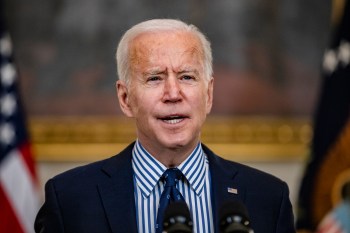The jobless speak on extending their benefits
Share Now on:
The jobless speak on extending their benefits
Mitchell Hartman: Tomorrow we’ll get the government’s monthly jobs report. Long-term unemployment remains high. And so far, Congress has not voted to extend unemployment benefits beyond the New Year.
New Hampshire Public Radio’s Dan Gorenstein went to an unemployment office in Concord.
Dan Gorenstein: You can see why extending benefits is such a tough question by talking with Joe.
Joe Giaquinta: Joe Giaquinta. G-I-A-Q-U-I-N-T-A.
Joe’s been out of work for a while now.
Giaquinta: I started collecting in the end of August 2010.
With unemployment stuck at 9 percent, it’s almost gospel: The longer you’re out of work; the harder it’ll be to shove your way back in. Which is why the guy who used to fix people’s furnaces has expanded his search — into the kitchen.
Giaquinta: But you know what? They are looking at my resume what I did for the past 23 years, they say, this guy doesn’t know how to cook.
At this point, Joe is just about out of benefits.
University of Chicago economist Robert Shimer says giving people up to 99 weeks of benefits buys millions of Americans a mirage: The dream that they can recapture their old lives.
Robert Shimer: Unfortunately, there are a lot of workers who are not going to get jobs that looked like what they were getting before. They’re workers who are going to take substantial and long-term wage cuts.
Shimer says workers like Joe need to adapt and get a new set of expectations. Not easy for a 55-year-old guy who used to make around $50,000 a year.
Giaquinta: You know, the kids are out of the house, but I still have a mortgage, and I have utilities and I have taxes and insurances, that’s why I don’t want to get stuck right now in that $9-an-hour job.
Some economists say not only do those benefits keep Joe and his wife in their home, that money helps drive the country’s recovery. Critics argue the cash Joe gets every week would be better off in the hands of employers. Instead of paying into the unemployment system, companies would have more money to grow and hire more workers. Of course, ending those extensions means millions of people like Joe Giaquinta have to scramble.
Giaquinta: It’s forget the career, it’s survival right now. I am going to have to resort to the McDonald’s, Lowe’s or Home Depot.
If Joe doesn’t get one of those jobs, he may just drop out of the labor market entirely. And Prof. Shimer says there’s a cost to that too.
In Concord, N.H., I’m Dan Gorenstein for Marketplace.
HOST: Tomorrow, Dan brings us the voices of workers at the unemployment office.
There’s a lot happening in the world. Through it all, Marketplace is here for you.
You rely on Marketplace to break down the world’s events and tell you how it affects you in a fact-based, approachable way. We rely on your financial support to keep making that possible.
Your donation today powers the independent journalism that you rely on. For just $5/month, you can help sustain Marketplace so we can keep reporting on the things that matter to you.


















